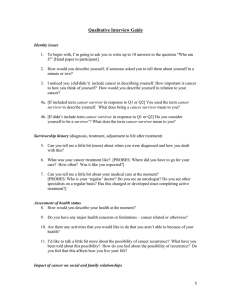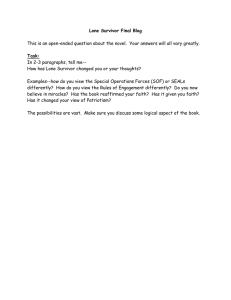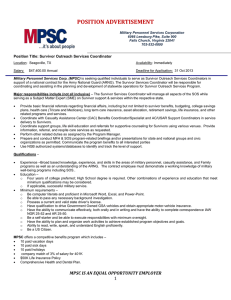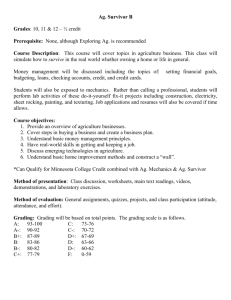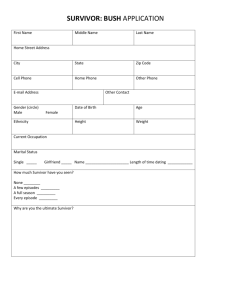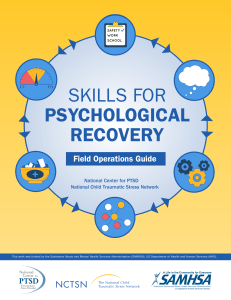Disaster Counseling
advertisement
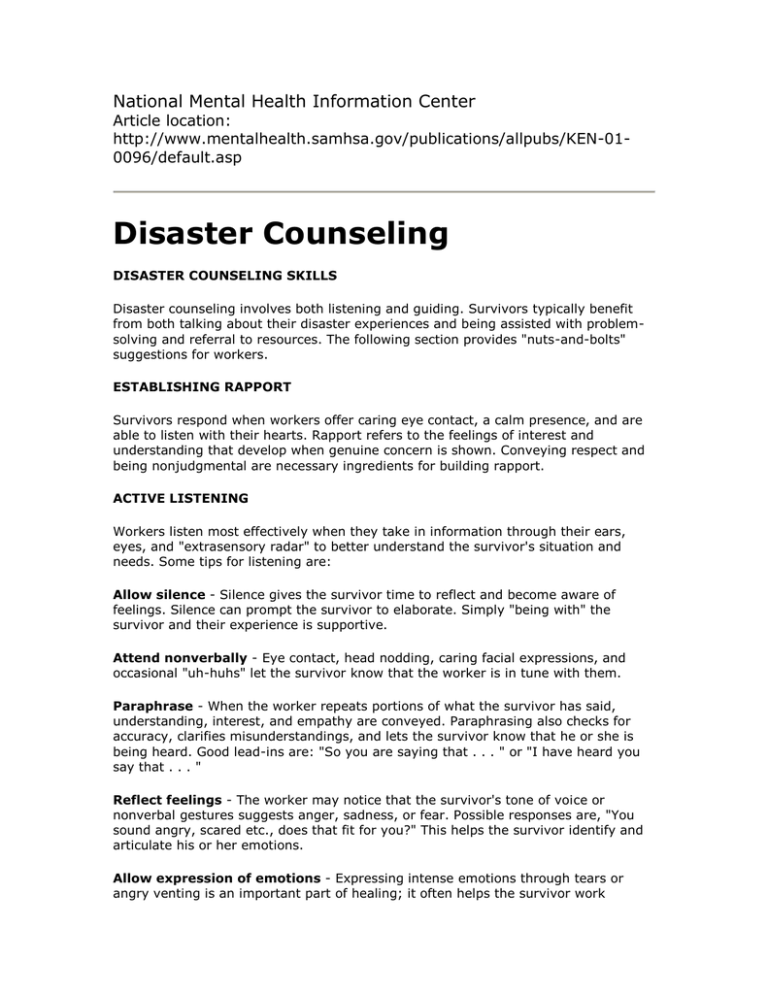
National Mental Health Information Center Article location: http://www.mentalhealth.samhsa.gov/publications/allpubs/KEN-010096/default.asp Disaster Counseling DISASTER COUNSELING SKILLS Disaster counseling involves both listening and guiding. Survivors typically benefit from both talking about their disaster experiences and being assisted with problemsolving and referral to resources. The following section provides "nuts-and-bolts" suggestions for workers. ESTABLISHING RAPPORT Survivors respond when workers offer caring eye contact, a calm presence, and are able to listen with their hearts. Rapport refers to the feelings of interest and understanding that develop when genuine concern is shown. Conveying respect and being nonjudgmental are necessary ingredients for building rapport. ACTIVE LISTENING Workers listen most effectively when they take in information through their ears, eyes, and "extrasensory radar" to better understand the survivor's situation and needs. Some tips for listening are: Allow silence - Silence gives the survivor time to reflect and become aware of feelings. Silence can prompt the survivor to elaborate. Simply "being with" the survivor and their experience is supportive. Attend nonverbally - Eye contact, head nodding, caring facial expressions, and occasional "uh-huhs" let the survivor know that the worker is in tune with them. Paraphrase - When the worker repeats portions of what the survivor has said, understanding, interest, and empathy are conveyed. Paraphrasing also checks for accuracy, clarifies misunderstandings, and lets the survivor know that he or she is being heard. Good lead-ins are: "So you are saying that . . . " or "I have heard you say that . . . " Reflect feelings - The worker may notice that the survivor's tone of voice or nonverbal gestures suggests anger, sadness, or fear. Possible responses are, "You sound angry, scared etc., does that fit for you?" This helps the survivor identify and articulate his or her emotions. Allow expression of emotions - Expressing intense emotions through tears or angry venting is an important part of healing; it often helps the survivor work through feelings so that he or she can better engage in constructive problem-solving. Workers should stay relaxed, breathe, and let the survivor know that it is OK to feel. SOME DO'S AND DON'T'S Do say: These are normal reactions to a disaster. It is understandable that you feel this way. You are not going crazy. It wasn't your fault, you did the best you could. Things may never be the same, but they will get better, and you will feel better. Don't say: It could have been worse. You can always get another pet/car/house. It's best if you just stay busy. I know just how you feel. You need to get on with your life. The human desire to try to fix the survivor's painful situation or make the survivor feel better often underlies the preceding "Don't say" list. However, as a result of receiving comments such as these, the survivor may feel discounted, not understood, or more alone. It is best when workers allow survivors their own experiences, feelings, and perspectives. KEN-01-0096
